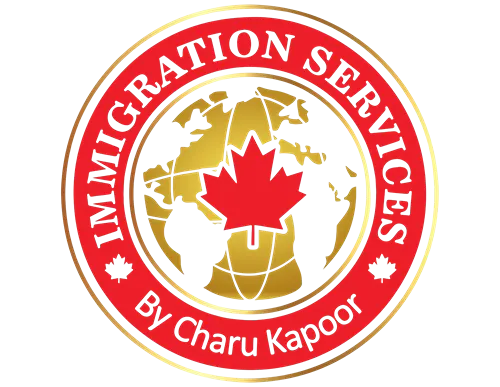Citizenship
The path to Canadian citizenship for permanent residents involves essential steps overseen by Immigration, Refugees, and Citizenship Canada (IRCC). Applicants undergo assessments of their knowledge about Canadian values, history, and institutions. After submitting their application, they await the decision on their eligibility for citizenship. The process culminates in a citizenship ceremony where they pledge their commitment to Canada.
Becoming a Canadian citizen marks the culmination of the immigration journey for many permanent residents. As they eagerly anticipate this milestone, they must navigate the final steps, including demonstrating their understanding of Canadian society and values. IRCC’s approval signifies their successful integration into Canadian life, confirming their commitment to their new home.


Discover your Canadian
Immigration Options
Navigating the Path to Canadian Citizenship
A significant number of Canadian permanent residents who have successfully navigated the immigration process eagerly anticipate the opportunity to attain citizenship, looking forward to the day when they can officially become recognized as Canadian citizens. As they approach this transformative milestone, there are several pivotal steps that need to be carefully addressed before the application for Canadian citizenship receives the approval of Immigration, Refugees, and Citizenship Canada (IRCC).
The journey towards citizenship entails a comprehensive assessment of an individual’s commitment to Canada’s values, laws, and society. It involves fulfilling specific requirements and obligations that serve as essential benchmarks of a candidate’s integration into Canadian life. These prerequisites encapsulate the essence of citizenship, encompassing a profound understanding of Canadian history, institutions, and civic responsibilities.
The citizenship application represents the culmination of a rigorous process, a testament to the applicant’s determination and dedication. However, this moment marks not just an endpoint, but rather the threshold of the final phase. The meticulous evaluation conducted by IRCC delves into the applicant’s adherence to residency conditions, language proficiency, and awareness of Canadian civic life.
With a sense of anticipation, applicants await the outcome of their citizenship application. During this assessment phase, every facet of their eligibility is carefully reviewed to ensure that the requirements have been met with utmost sincerity. This scrutiny underscores the commitment of the individual to embrace Canadian values and contribute positively to the country’s social fabric.
The apex of this journey is the citizenship ceremony, an event of profound significance. Here, applicants take the Oath of Citizenship, a pledge that embodies their allegiance to Canada and its values. The ceremony serves as a testament to their preparedness to assume the responsibilities and privileges of Canadian citizenship.
In conclusion, the path to Canadian citizenship is characterized by resilience, dedication, and a genuine aspiration to become an integral part of Canada’s diverse society. The final steps leading to citizenship involve a comprehensive evaluation of an applicant’s qualifications and commitments. These culminate in the citizenship ceremony, an occasion celebrated with pride as individuals pledge their loyalty to Canada, solidifying their identity as esteemed Canadian citizens.
How to get Canadian Citizenship?
To acquire Canadian citizenship through naturalization, individuals must initially obtain permanent residency in Canada. As with all Canadian immigration pathways, meeting specific criteria is crucial for permanent residents seeking eligibility for citizenship:
- Residency Obligations: Applicants must prove their residence in Canada for a total of three years (equivalent to 1,095 days) within the five years preceding their application, except in certain circumstances.
- Tax Filing: Prospective citizens must have fulfilled their tax obligations by filing taxes in Canada for a minimum of three years within the five-year period prior to applying.
- Citizenship Test: Applicants aged 18 to 54 are required to take a citizenship test, demonstrating their understanding of Canadian rights and responsibilities.
- Language Proficiency: Language skills are essential for Canadian citizenship. Individuals must showcase a basic level of proficiency in either English or French.
Canadian permanent residents must meet these prerequisites and ensure they satisfy additional minimum criteria to qualify for Canadian citizenship.
When to apply for Canadian Citizenship?
In order to be eligible to apply for Canadian citizenship, individuals holding permanent residency (PR) status must meet specific residency requirements. These requirements dictate that PRs must have resided in Canada for a minimum of 1,095 days, equivalent to three years, within the five years preceding their citizenship application. This period of residence ensures that applicants have established a meaningful connection to Canada before seeking citizenship.
However, it’s important to note that there can be exceptions to this rule based on certain circumstances, such as work or study commitments abroad, or accompanying a Canadian spouse or partner overseas. These exceptions acknowledge that individuals may have valid reasons for extended absences from Canada while maintaining their permanent resident status.
Additionally, meeting the residency requirement is just one facet of the process. Permanent residents aspiring for Canadian citizenship must also fulfill additional minimum criteria to ensure their readiness and commitment to becoming a full-fledged citizen of Canada. These criteria encompass tax filing obligations, language proficiency, and the successful completion of a citizenship test, all of which collectively demonstrate an applicant’s integration into Canadian society and understanding of its values.
How to apply for Canadian Citizenship?
Since the implementation of amendments to the Citizenship Act in late 2017, Canadian permanent residents have benefited from a faster and more streamlined path to Canadian citizenship. Eligible candidates can anticipate an expedited process marked by efficiency and clarity. Applicants are required to complete the Canadian citizenship assessment, and in certain cases, they might be invited to attend an interview with a citizenship judge upon request by IRCC (Immigration, Refugees and Citizenship Canada).
Once the application is approved, successful candidates are invited to participate in a significant event known as the Citizenship Ceremony. During this ceremony, candidates take the solemn Oath of Citizenship, marking the official moment of their transformation into full-fledged Canadian citizens. This ceremony serves as a testament to their commitment to Canada and its values.
At Charu Kapoor Immigration Ltd., we are committed to guiding and supporting individuals through this journey to Canadian citizenship. Our experienced team is dedicated to ensuring that the process is not only efficient but also personalized to each applicant’s unique circumstances. With our assistance, you can navigate the path to Canadian citizenship with confidence and ease.
Dual Citizenship
Canada’s policy of recognizing dual citizenship means that you won’t be required to give up your original citizenship even after your application has been successfully approved by IRCC (Immigration, Refugees and Citizenship Canada).
This recognition of dual citizenship is a fundamental aspect of Canada’s inclusive approach to immigration and citizenship. It allows individuals to maintain their connections to their countries of origin while fully participating in the Canadian society as citizens. This dual status provides a wide range of advantages, including the ability to freely travel between countries, access social benefits, and enjoy the privileges of both citizenships.
By embracing dual citizenship, Canada not only celebrates the diverse backgrounds of its citizens but also encourages global connections and cultural exchanges. This policy aligns with Canada’s values of multiculturalism, openness, and unity in diversity, creating a welcoming environment for individuals from all around the world to call Canada their home.
Advantages of Canadian Citizenship Compared to Permanent Residency
Having a permanent residency in Canada offers numerous benefits similar to those enjoyed by citizens. Permanent residents have access to publicly funded education and healthcare, can reside and work anywhere within Canada, and their fundamental rights are safeguarded by Canadian law and the Canadian Charter of Rights and Freedoms.
However, becoming a Canadian citizen presents its own set of advantages. Here are five privileges that permanent residents can exclusively enjoy after acquiring Canadian citizenship.
Voting Rights
In Canada’s parliamentary democracy, citizens aged 18 and above can cast their votes in federal, provincial, and municipal elections. This enables citizens to have a direct influence on the leadership of their country, province, territory, and municipality. The ability to vote is a pivotal aspect of Canadian citizenship that grants both a voice and responsibility in shaping the nation’s governance.
Political Candidacy
Canadian citizens have the opportunity to run for political office at municipal, provincial, and federal levels. With several prominent political parties, interested citizens can actively engage in politics, join youth wings, or even stand as independent candidates to contribute to the country’s governance.
Passport and Travel Benefits
Upon obtaining Canadian citizenship, individuals can apply for a Canadian passport. Unlike permanent resident cards, passports require renewal every 5-10 years. A Canadian passport is highly regarded worldwide and facilitates visa-free travel to numerous countries. Additionally, citizens can conveniently re-enter Canada using their passport, unlike permanent residents who rely on travel documents.
Citizenship Inheritance for Children
Children of first-generation Canadian citizens, regardless of whether they are born within Canada or abroad, automatically become Canadian citizens. This privilege allows them to enjoy the benefits of Canadian citizenship without undergoing the citizenship application process. Conversely, children of permanent residents can gain Canadian citizenship solely if they are born within Canada. If born abroad, they must be sponsored by their parents.
Global Residence Freedom
Canadian citizens have the freedom to live anywhere in the world without losing their citizenship. Unlike permanent residency, there are no residency obligations for Canadian citizens, except for the requirement to renew their passport every few years. However, citizens living abroad for more than five years lose their right to vote in federal elections.
While permanent residency offers numerous advantages, Canadian citizenship provides additional rights and opportunities that reflect a deeper engagement in the country’s civic and political life.
FAQ’s on Canadian Citizenship
Welcome to the FAQs on Canada Citizenship section, where we provide comprehensive answers to the most commonly asked questions regarding becoming a Canadian citizen. Whether you’re a permanent resident curious about the steps to citizenship, seeking information about eligibility requirements, or wanting to understand the benefits of holding Canadian citizenship, this section is designed to address your queries and provide you with clear insights into the process. Explore the information here to gain a deeper understanding of the path to Canadian citizenship and the various aspects associated with this significant milestone in your immigration journey.
Does A Child Need To Meet The Three-Year Minimum Residency Requirement In Order To Be Eligible For Canadian Citizenship?
No, children under the age of 18 who are permanent residents are not obligated to meet the three-year (1,095 days) physical presence requirement in Canada in order to apply for citizenship.
Do I Have To Give Up My Natural Citizenship In Order To Become A Canadian Citizen?
No, Canada recognizes dual citizenship, so you can retain your original nationality. Nevertheless, permanent residents aspiring to become Canadian citizens should confirm whether their current country of nationality acknowledges dual or multiple citizenships.
How Long Do I Have To Wait Before I Can Apply For Canadian Citizenship?
To be eligible to apply for Canadian citizenship, permanent residents must have lived in Canada for at least 1,095 days within the five years prior to their application. In certain exceptional situations, individuals who don’t meet the minimum residence requirement might still be granted citizenship. However, children under the age of 18 are exempt from this requirement.
Do I Have To Apply For Citizenship As Soon As I Become Eligible?
No, there is no time constraint for applying for citizenship as long as you fulfill the eligibility criteria. Unlike specific permanent resident programs, there are no set application windows or deadlines that you need to adhere to.

